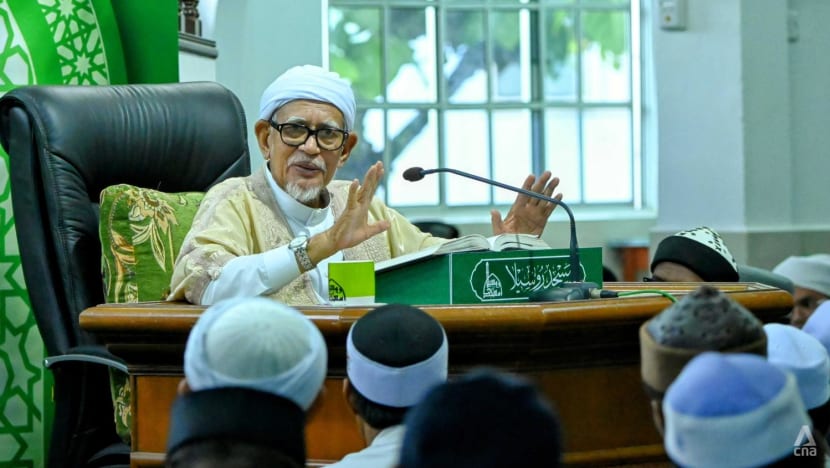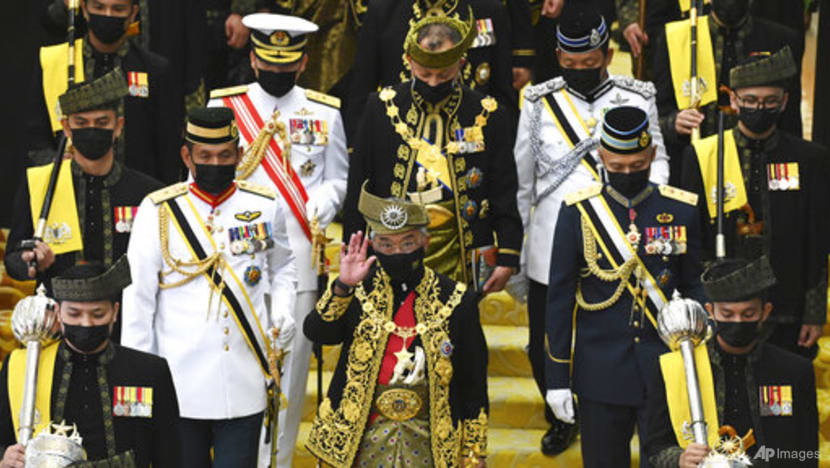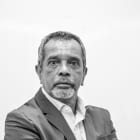Commentary: Tension between Malaysia's monarchy, PAS reflects the rapidly changing dynamics in politics
The stance taken by PAS in its simmering tiff with Malaysia’s royal households underscores the growing confidence among party leaders following their impressive electoral in the 2022 general election, says CNA's Leslie Lopez.

KUALA LUMPUR: A little-discussed test of wills that may be playing out between two of Malaysia’s most authoritative religious institutions is set to determine the direction Islam will take in shaping the country’s political landscape.
On one end are the sultans, whose revered status as custodians of Islam as enshrined in the Federal Constitution has helped reinforce the special status of the dominant Malay community in a multi-ethnic and multi-religious country. On the other end is Parti Islam Se-Malaysia (PAS), which appears to be insisting on having a greater say over matters related to religion, after it emerged with the most seats in the lower house following the November 2022 general election.
In recent weeks, both sides have taken divergent positions after PAS leaders defied decrees issued by four of the nine hereditary rulers prohibiting the use of mosques to spread political messages.
On Wednesday (Apr 5), Malaysia's King Al-Sultan Abdullah Ri'ayatuddin Al-Mustafa Billah reminded Muslims to safeguard the institution of mosques from becoming a political arena for any party. "The harmony of the mosque institution is safeguarded by us all, Muslims, not just the leaders but the congregation of the mosque," he was reported as saying in local media.
PAS PRESIDENT ABDUL HADI AWANG LEADING AGITATION
Leading the agitation against the royal households is PAS president Abdul Hadi Awang, a right-wing cleric who resides in the east coast Terengganu state under PAS.
After Terengganu’s Sultan Mizan Zainal Abidin issued a decree through the state’s religious council, banning the spread of political messages and activities at Muslim places of worship, Abdul Hadi appeared at the pulpit several days later to deliver his weekly sermon after Friday midday prayers at the Rusila mosque in the town of Marang, where he is also the elected parliamentary representative.
In Terengganu, political leaders and activists are not allowed to lead and deliver Friday sermons in mosques as well as deliver religious talks without the state religious council's permission.
The bulk of Abdul Hadi’s sermon early last month was not political in nature. However, the PAS leader mentioned how "Allah has shown us in all aspects (of life) on how to (do things) ... and (taught us) how to govern a country".
Last week, his son Muhammad Khalil, took Abdul Hadi’s place at the Rusila mosque in another apparent contravention of the ruler’s diktat.
There have been no other reports of PAS leaders flouting the rules in Selangor, Perak and Johor, where similar decrees have been issued. There has also been no response from the royal households or the Malaysian authorities over the actions of the PAS leaders.
There is, however, strong speculation that the country’s sultans could convene a special rulers' conference after the fasting month of Ramadan to discuss their growing concerns over the growing trend on the use of religion by hardline Islamic clerics in politics.
Police reports have already been lodged against Abdul Hadi, who also served as Terengganu’s chief minister between 1999 and 2004, by politicians from Prime Minister Anwar Ibrahim’s ruling Pakatan Harapan (PH) coalition for defying the royal decree over bringing politics into mosques and prayer halls.
According to local media reports, Abdul Hadi has stated that it was a politician’s responsibility to deliver religious lectures in mosques and suraus, adding that he will continue to give ceramahs there “as usual”. "We have to understand … when we talk about Islam, we cannot separate politics from religion,” he reportedly said.

CHANGING DYNAMICS IN MALAYSIAN POLITICS
The tensions between the royal households and PAS reflect the rapidly changing dynamics in Malaysian politics.
Malaysia’s sultans - who serve as titular heads in the nine of Malaysia’s 13 states and observe a unique rotating system where they chose a king from among themselves to reign for five years - were always intended to play a ceremonial role in the country’s constitutional monarchy. But the political chaos since the 2018 general election that saw three government changes before the national polls last November set the stage for the monarchy to play a more direct role as peacemaker and final arbiter.
The 15th General Election (GE15) also produced a hung parliament with no coalition securing a clear majority to form a government. The political impasse was resolved with the direct intervention of the king, paving the way for Anwar’s PH coalition, which secured support from other parties, such as the United Malays National Organisation (UMNO) and parties from the East Malaysian states of Sarawak and Sabah, to form a government.
It is not only the role of the monarchy that has changed. Attitudes among the country’s dominant Muslim Malay population, which account for more than 60 per cent of the country’s 33.6 million people, towards their once feudal culture and heritage have also undergone a deep upheaval over the last three decades, a period marked by a steady shift towards greater conservatism around Islam. This has benefited PAS politically.
The stance taken by PAS in its simmering tiff with the country’s royal households underscores the growing confidence among party leaders following the impressive electoral gains they secured in GE15.
The party alone won 49 parliamentary seats, more than double of what it used to win in previous polls over the last two decades. With the purely Malay-based Parti Pribumi Bersatu Malaysia (Bersatu), their coalition Perikatan Nasional (PN) currently controls 73 seats in the lower house.
All of this represents serious political challenges for Anwar and his largely multi-racial ruling coalition, which now appears to be locked in a two-party political system where the opposition is made up entirely of Malay nationalist and religious parties.
Any government action against PAS and its leaders would be construed as political persecution and could upset the delicate balance in an already fractured Malay community. But if the rulers take the lead in dealing with this issue, there will be further blurring of the lines of power between the politicians and the monarchy.
Leslie Lopez is a senior correspondent at CNA Digital who reports on political and economic affairs in the region.


















